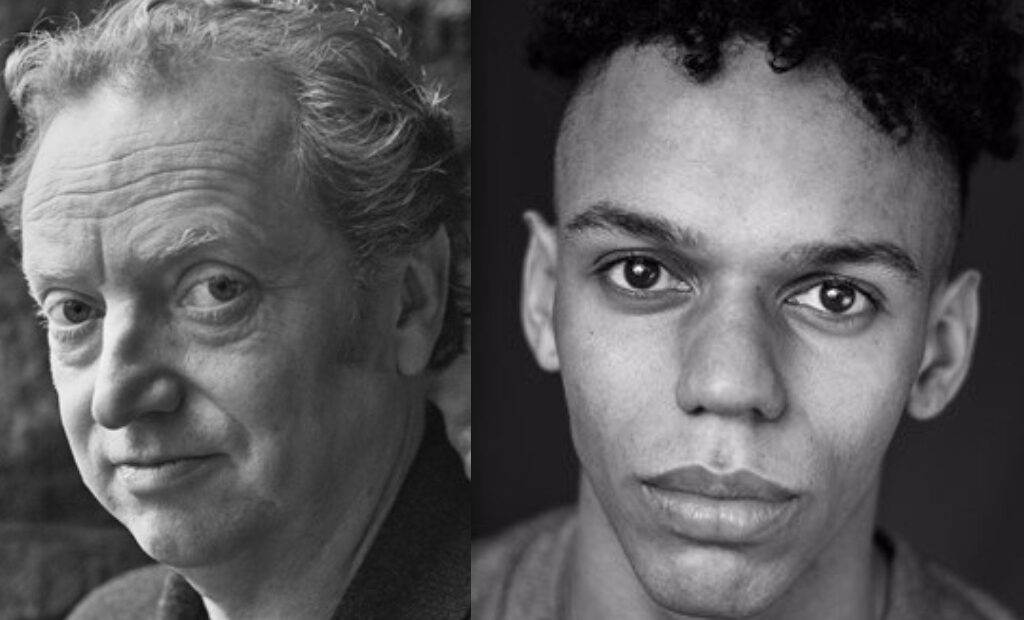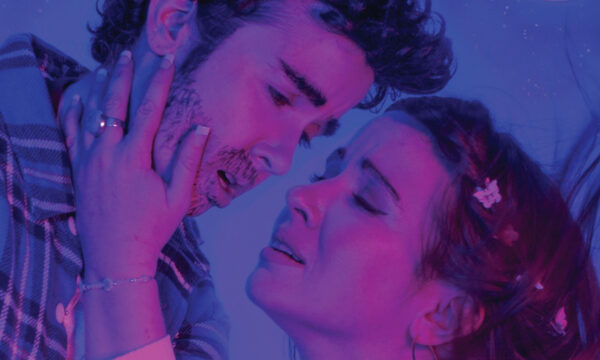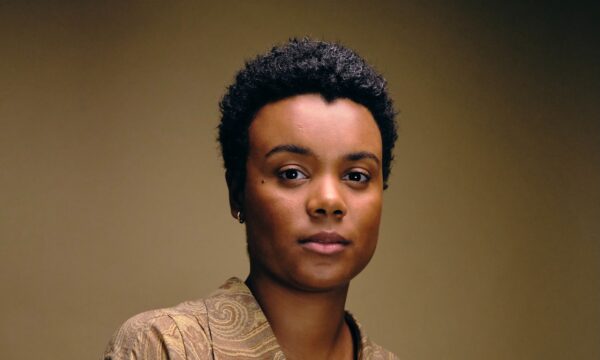The importance of play in theatre with Paul Hunter and Jerone Marsh-Reid

Get Happy is the outdoor interactive play by Told by an Idiot. We spoke to director Paul Hunter and actor Jerone Marsh-Reid about what to expect, the importance of “play” in theatre and in conceiving change, and the pivotal role of interactive theatre as a tool for political activism.
Thank you very much for giving me your time for this interview. Paul, can I begin by asking you to tell us a bit about Told by an Idiot? What is it and how did it come about?
Paul Hunter: Told by an Idiot has been creating the unexpected since 1993 and we are dedicated to chaos. We take creative risks, we tell universal stories and we make theatre for anyone who breathes. The director and writer John Wright, actor Hayley Carmichael and I formed the company after meeting at Middlesex Poly.
Can you talk about the importance of interactive theatre as a political act in modern society, and Get Happy’s aim in relation to that, especially with lockdown?
PH: In Get Happy, the performers have a very direct relationship with the audience. In all our work we make no attempt to recreate reality on stage, being firmly of the view that film and TV will always do that infinitely better. The performers interact with the audience throughout the show, and the audience is a crucial part of the entertainment.
For us, it is not a political act to reinvent Get Happy for outdoors, but during lockdown when most performances have been reduced to the poor substitute of filmed shows or the innately un-theatrical monologue, it feels important to remind people that theatre is fundamentally a live communal experience.
A child’s imagination always manages to perceive hope, in celebrating it on the stage you are making a direct call for change in the imagination of audience members of all ages. In what ways would you say Get Happy will allow you to make that call?
PH: In some ways, Get Happy tries to unify the imagination of both the youngest audience member and the oldest. Our aim was to create material that everyone could laugh at and enjoy. Something not bound by a single narrative but rather by the pleasure of watching performers getting pleasure from doing ridiculous things.
Can you tell us a bit about the original performance at the Barbican in 2013? How did it come about, what expectations did you have and what were the highlights?
PH: The original production at the Barbican in 2013 was inspired by the work of Pina Bausch, Charlie Chaplin and Dr Seuss. The company was made up of musicians, hip hop dancers and highly gifted comic performers. We undertook three periods of research and development prior to rehearsals where young children were invited into the room so we could be provoked by their imagination. One of the highlights of the first season at the Barbican was seeing an audience young and old all laughing at the same things.
What difference in audience response did you notice when taking the show to Luxembourg and Beijing, and in what ways did it change the show?
PH: When we took the show to China and Luxembourg, we discovered how universal the material was that we had created. This was enormously satisfying.
Told by an Idiot is a really marvellous idea – through spontaneous and unpredictable performances, viewers are made to question reality and celebrate the spontaneity and unpredictability of life. Can you offer some thoughts as to the ways in which play makes a performance spontaneous and how do you go about preparing for it?
PH: The notion of “play” is something we are passionate about, and it is a hard thing to describe. It is at the heart of everything that we do, and it may sound contradictory, but we take our play very seriously. We play the way a child plays, with complete conviction. This always results in our work feeling and appearing more spontaneous. Nothing is ever too set, but rather it is found in the moment in front of the audience.
Jerone, you played Stan Laurel in The Strange Tale of Charlie Chaplin and Stan Laurel. What was it like for you to take on that role?
Jerone Marsh-Reid: Taking on the role of Stan Laurel was an honour. I have vivid memories of my mother watching Laurel and Hardy as a kid so when the audition came around, I was excited to explore that world of comedy. Although Stan and I are worlds apart in a multitude of ways, there was a surprising amount of similarities.
Can you speak about the role you play in Get Happy?
JMR: My role in Get Happy seems super playful. I love performing in shows that involve the sense of play. It is also quite physical and requires a lot of movement, which is an area I enjoy and am comfortable in.
Given that your background is in dance and movement, can you speak about the benefits of using the body as a means of communication in moving beyond barriers?
JMR: I have always communicated through the body. You don’t always need text to tell the story. Humans are incredibly intelligent; just the slightest change in physicality can change a person’s status, age or even gender. When it comes to movement/dance, although you want to be sharp and clinical with the counts, it is also important to allow your movement to come from an organic place, and that will resonate with the scene you’re in. Having an internal monologue also most definitely helps.
What advice would you give to aspiring artists who question the categories that separate dance, movement, theatre and play?
JMR: I believe all these practices sit in the same world; it all comes down to the way you apply them. At the end of the day, it’s all performance. I aim to play in most of the performances I do, even if the role isn’t necessarily a playful one – if the performer is having fun, then it is likely the audience will too.
Having studied physical theatre for over three years, it has always been difficult to distinguish the difference between physical theatre and dance. Physical theatre usually includes a script, whereas dance usually uses themes and stimuli, although there are many companies weaving in and out of the two. I would say don’t waste energy on trying to put practices in brackets but use that time in finding ways to allow them to feed into one and other.
Comedy is a very effective tool for political and social criticism. In this time of socially distanced interactions, climate catastrophe, ongoing wars and exploitation, it can be difficult to remember to take life a little less seriously. Can you offer some wise words of hope?
PH: In dark times comedy always becomes more important, whether it’s through satire or an attempt to escape.
I’ll leave you with this quote from the playwright Peter Barnes: “In the end, I believe the only thing in the theatre that has the ring of truth is comedy”.
Marissa Khaos
Get Happy features as part of the Greenwich+Docklands International Festival from 29th August to 12th September 2020. For more information and to book your tickets visit Told by an Idiot’s website here.
























Facebook
Twitter
Instagram
YouTube
RSS